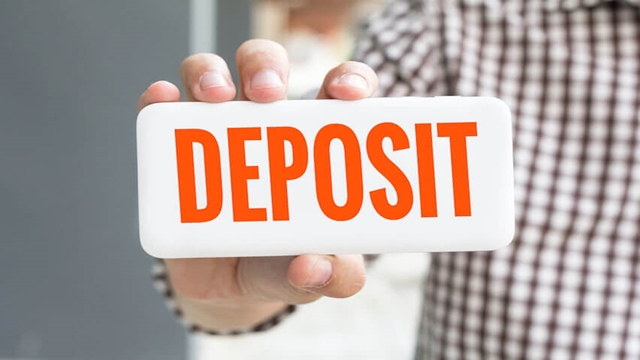SAM
Published:2018-03-29 22:22:04 BdST
SoEs may be allowed to deposit 60pc with public banks, 40pc with PCBs
FT ONLINE
The government is likely to relax the policy to allow its agencies so that they can deposit more funds with the private commercial banks (PCBs) to help mitigate the ongoing liquidity crunch.
Under the proposed relaxation, the state-owned enterprises (SoEs) may be allowed to deposit 60 per cent of their funds with the public banks and rest 40 per cent with the PCBs.
Currently, the state agencies are allowed to deposit 75 per cent of their funds with the public banks and rest 25 per cent with the PCBs.
"An official announcement in this connection is expected to come shortly," a highly placed source at the government said to media.
He also said the issue has also been discussed at different high-level meetings of the central bank in the last couple of days.
The private bankers are set to seek 50 per cent deposit of the government funds to meet the growing demand for the liquidity in the banking sector, according to banking sector insiders.
They also said the bankers may also urge the regulators to slash the cash reserve requirement (CRR) by 100 basis points to 5.50 per cent for the commercial banks from the existing 6.50 per cent on the same ground.
The appeals will be made at a meeting of the Bangladesh Association of Banks (BAB) scheduled to be held at BAB office in the capital on Friday evening in the presence of Finance Minister AMA Muhith.
Bangladesh Bank (BB) Governor Fazle Kabir, Finance Secretary in-charge Mohammad Muslim Chowdhury and Senior Secretary of the Bank and Financial Institutions Division of Ministry of Finance Md. Eunusur Rahman are also scheduled to attend the meeting along with the finance minister.
The BAB has arranged the meeting to discuss the ongoing core problems in the banking sector and possible remedy, they added. The chairman and managing director of the BAB member banks have already been requested to attend the meeting.
The Ministry of Finance as well as the central bank of Bangladesh is now working with various options to mitigate the ongoing liquidity crunch, according to banking sector insiders.
As part of the moves, the BB has sought information on withdrawing of funds by the SoEs from the PCBs from January 01 to March 23 last, they added.
"We've been asked to provide such information by 5:00 pm on Wednesday," a senior official of a leading PCB said without elaborating.
Sources, however, said the central bank will communicate with the ministry of finance after receiving all information on withdrawing of funds by the state agencies from the PCBs.
The BB is likely to request the finance ministry for taking effective measures to stop abrupt withdrawal of funds by the SoEs from the PCBs to help improving liquidity situation in the banking system.
The overall deposit rates started creeping up since the beginning of this calendar year, primarily due to withdrawal of funds from the PCBs by a section of depositors, including public sector agencies.
The withdrawal, according to the sector insiders, has resulted in a notable shortage of liquidity in the sector recently.
The problems centering the Farmers Bank Ltd (FBL) and some other scams have created a sort of crisis of confidence in the banking industry.
Most SoEs are now reluctant to keep their funds with the PCBs that are suspected to be fundamentally weak.
Some SoEs particularly oil and gas distribution companies have already withdrawn a part of their special notice deposits from PCBs, they confirmed.
The PCBs are now forced to offer higher rates to comply with the funded commitments to their clients as per respective schedules, they explained.
The situation emerged after the Farmers Bank failed to pay a fixed deposit worth over Tk 5.08 billion due to liquidity shortage.
The money belongs to the Climate Change Trust Fund (CCTF).
After the incident, the government fund managers particularly of power, energy and gas sectors are exercising caution while depositing funds with different PCBs.
Earlier on February 17 last, BB Governor Fazle Kabir at a function sought the finance minister's intervention to stave off withdrawal pressure coming from the state entities.
On the other hand, the state-owned commercial banks (SoCBs) are enjoying a comfortable satiation on liquidity as the SoEs prefer depositing their funds with the public banks.
The SoCBs are now charging maximum 10:50 per cent interest rate on term-deposit for other banks particularly PCBs that have also pushed up the overall interest rates on lending in the banking sector.
A BB senior official said the central bank has already been informed about the issue and taken necessary measures in this connection.
Unauthorized use or reproduction of The Finance Today content for commercial purposes is strictly prohibited.


